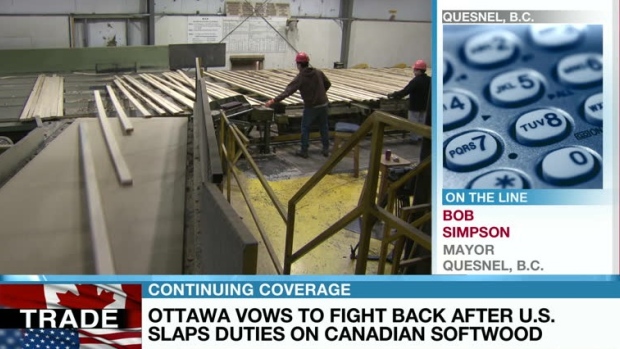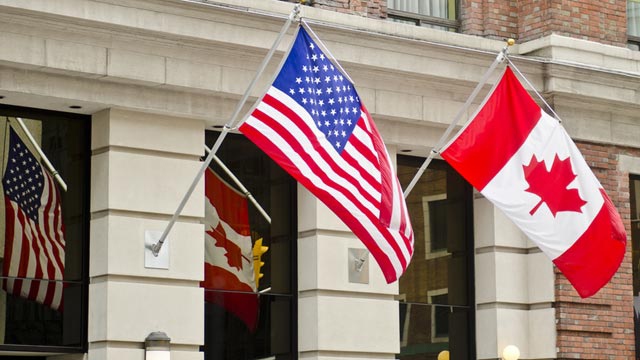Apr 25, 2017
Lumber tariffs 'deja vu all over again': Quesnel Mayor

The Mayor of Quesnel, British Columbia says that when it comes to the United States imposing new tariffs on softwood lumber, he’s seen this play before. In an interview on BNN, Bob Simpson said this is just another volley fired in the long-simmering dispute, and the important part is how Canadian producers deal with the new duties.
“As Yogi Berra said, this is déjà vu all over again. We’ve been here a number of times, there’s always this shock and awe, and catastrophic impact response,” he said. “But eventually, this will hopefully settle into the norm. So we’re going to have to deal with these duties right now: that’s going to happen on a company by company basis.”
HAVE YOUR SAY

Which of these sectors should Ottawa defend most viogorously in trade talks with the U.S.?
Simpson said each company’s response will have to be aligned to the various levels of duties imposed.
“Every company is going to have to figure out what their strategy is going forward, how much of their lumber that is going into the [United] States just now can they deflect to other markets, how much can they absorb in pricing: pricing is going to be a major factor,” he said. “The politicians, the CEOs, et cetera, are caught crying foul: that’s always Canada’s first response.”
Simpson said the issue will continue to crop up on a regular basis if Canada doesn’t make changes to the way it prices forestry rights, which the U.S. has long claimed acts essentially as a subsidy for domestic producers.
“Until such time as we are willing to take a look at public ownership of our land base and how logs are made available to mills, the Americans are always going to be able to point at our market pricing system, our log pricing system, and cry foul as well,” he said. “We don’t seem to be willing to sit at the table and figure out what the longer-term strategies are to make out biggest trading partner more comfortable with how we supply our mills with logs.”





